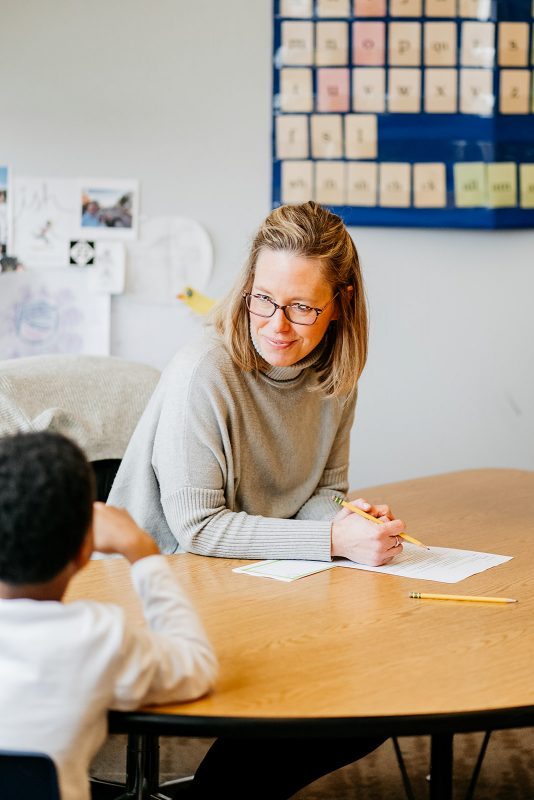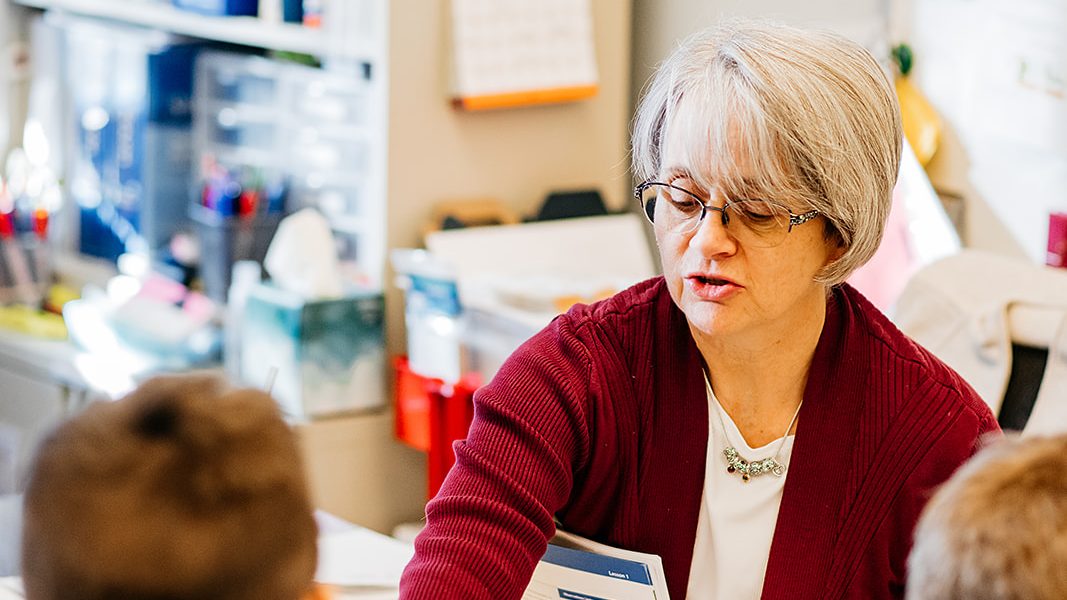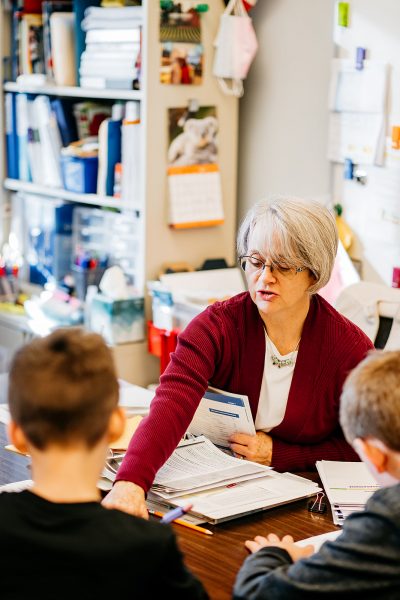
Does my child need a tutor?
November 2, 2023
Parenting our ADHD Children with Love and Knowledge
November 20, 2023
Want to know one thing that can make a profound difference in your impact as an educator? The language you use.
At Springer we believe strongly in being intentional with our language. One book at the top of our recommended reading is always The Power of Our Words by Paula Denton, Ed.D. Have you read it?
In addition to being a must-read for any new educator, is also a great book to revisit often if you are experienced, or if you work with children in any capacity. Parents will also find the approach interesting and find takeaways to improve communication at home.
One significant lesson is “Be direct and genuine.” Here’s how to apply it and why we should.
“When we say what we mean and mean what we say, children learn that they can trust us. They learn that we won’t use language to trick, manipulate or confuse them. This feeling of safety must be in place if children are to take the risks that are necessary for learning--to try out fledgling skills, to explore… thoughts, and to take on challenges…Direct and genuine teacher language allows children to feel respected and to more easily understand what the teacher means.”
The book lists some of the common ways that we use indirect language. One common example is to praise a couple of students that are doing what you want everyone to do. Brilliant, right?
The problem is that this is only effective if the student wants to make you happy. It doesn’t actually help them develop autonomy and self-control, which are key skills we want all students to gain. The example they use in the book was one we all have surely done ourselves. “I like the way Henry and Lucien are sitting on the rug.” Doesn’t sound terrible. But, an improvement—direct and genuine language—would be “Come to the meeting rug and have a seat.”
Another part of being direct and genuine is making statements instead of asking questions.
We may phrase a directive as a question to make our command sound softer and more easily accepted. However, some students who may be less verbally skilled or too distracted in the moment, may truly believe they have a choice and that both choices are acceptable. This leads to confusion and frustration when the teacher finally tells them directly what they should be doing. It is much better to start by being direct in the first place.
Professionals and parents alike can learn from this approach. This week, challenge yourself to be direct and genuine in your conversations.
Instead of “Could you open your books to page 314?” Try “Open your book and turn to page 314.” Likewise, instead of “Could you take out the trash,” try “Please take out the trash," in a calm and even tone.
Instead of standing next to a line of students line saying, “I like the way ____ and ____ are standing quietly.” Go to the students who are still talking and say, “Stop talking and face the front now," with a calm and even tone.
Give it a try and see how you do. Practice is the key. Changing your language does not happen quickly, so do not give up! Choose one small tweak and commit to practicing. You will improve, and your relationship with your students and the children in your life will benefit.

Photography by Leah Davies
Thank you to Shanda Arthur, Dean of Students, for sharing these key excerpts from The Power of Our Words: Teacher Language that Helps Children Learn. By Paula Denton, Ed.D. 2nd Edition.



